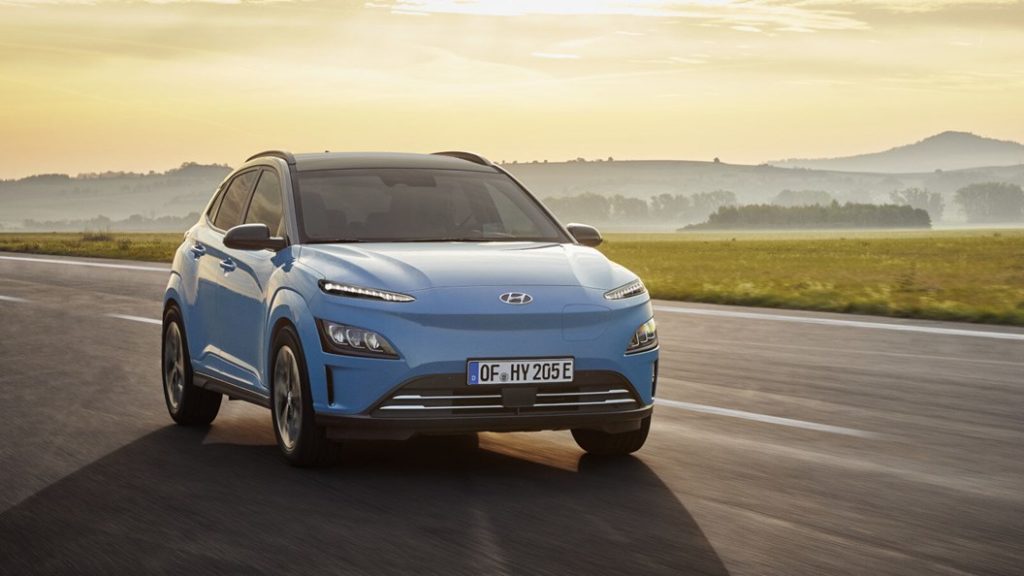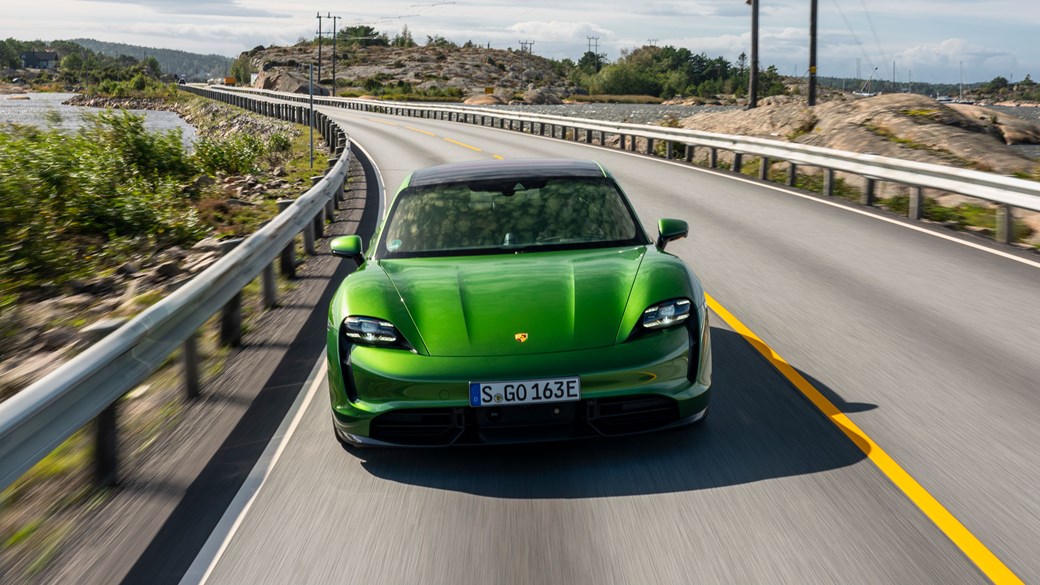UK car buyers are gradually waking up to electric cars – and sales have continued to grow despite the Coronavirus pandemic. This trend will only continue as the costs of EVs fall, ranges increase and the electric charging network expands. With the UK goverment set to ban the sale of petrol and diesel cars from 2030, electric cars will be your only option in the future, anyway.
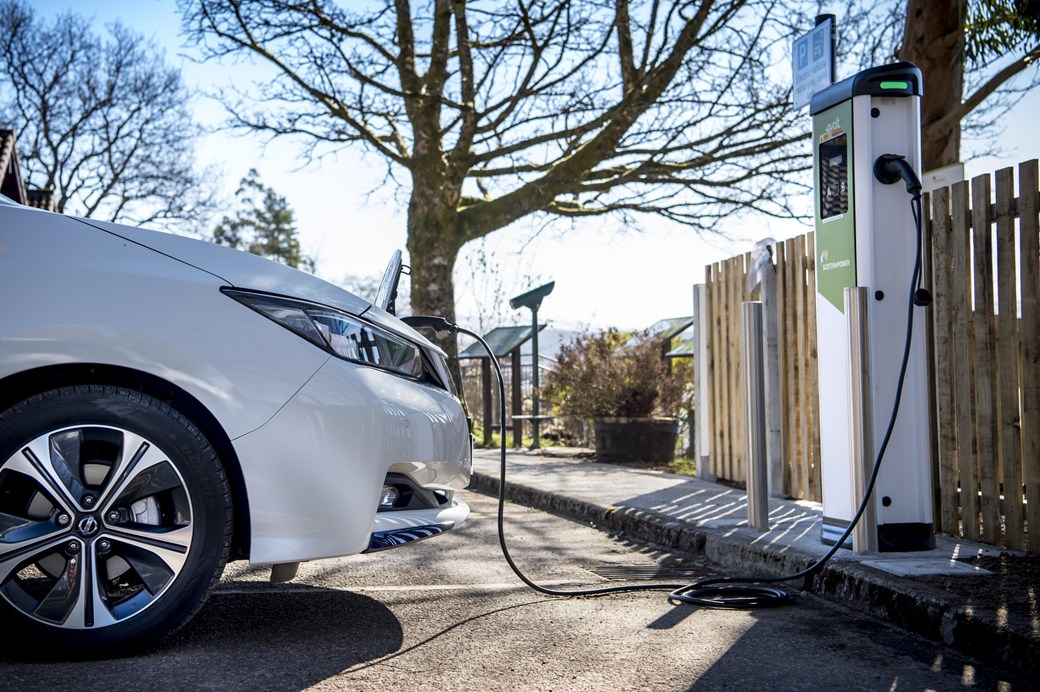
The best EVs to buy in the UK
Like any fossil-fuel powered car, battery electric vehicles (BEVs) come in all shapes and sizes, and which EV is best for you will depend on a variety of factors – such as your average daily mileage, the type of driving you do and access to private or public charging points. There’s no point having an electric car if it can’t accommodate your usage, of if the infrastructure isn’t there to support it, after all.
Want to know which is the best pure electric car for you to consider? We’ve handily split them into different categories, so browse through our guide below defined by vehicle type. There’ll be an electric car that’s right for you somewhere in this lot – we’ve covered most budgets and requirements, so read on to find out which we recommend the most highly.
Best electric family cars
Not everyone wants an SUV, so here we round up the finest electric family cars. We’ve got hatchbacks and saloons, ranging in price from ‘quite affordable’ to top-end electric Porsches. This sector will blossom in the coming months, as more and more EVs are released. We’ll be updating it regularly.
VW ID.3
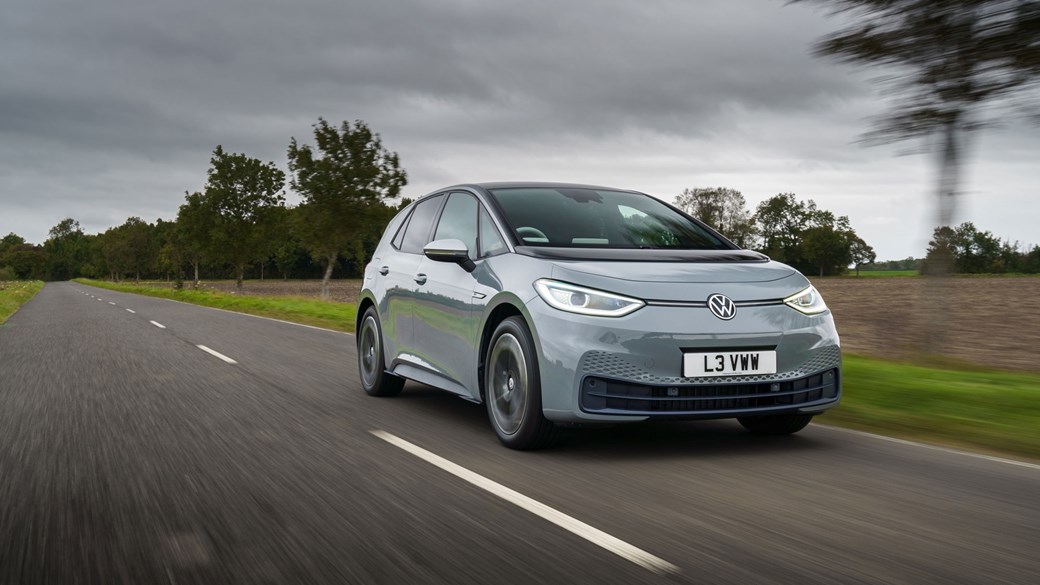
- From £38,800
Volkswagen offered an all-electric version of the last Golf – but not so with the new Mk8. That’s because it’s branching out into its own standalone range of electric cars badged ID. The 3 signifies that this is roughly the same size as a Golf and there will be a choice of battery capacities to offer a range of price and range. We’ve tested the Volkswagen ID.3 and it’s one of the slickest mid-sized, mid-budget EVs out there, with a keen drive, the usual Wolfsburg quality and enough panache to keep the most tech-savvy buyers happy.
Read our VW ID.3 review
View Leasing Offers
Volvo XC40 Recharge
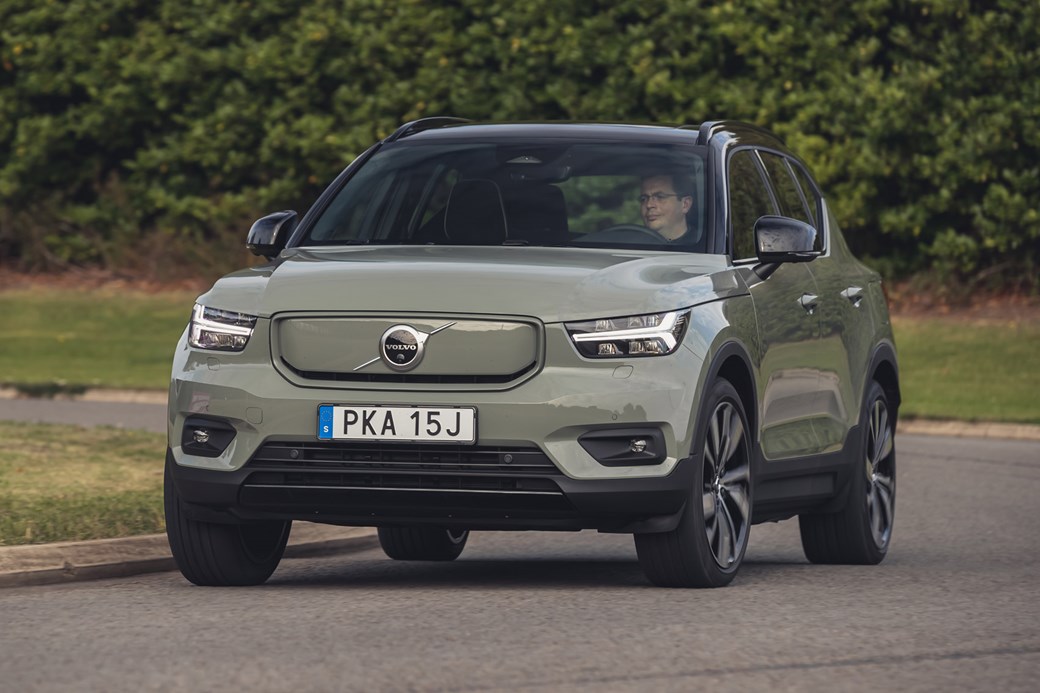
- From £59,985
The most impressive thing about the first all-electric Volvo is not its lively acceleration, although 4.9 seconds to 62mph can be fun. No, the real achievement is just how much like every other XC40 it feels to drive or be passengered in. Considering that the powertrain is completely different, and the weight much greater, it does a very good job of offering the same mix of refinement, comfort and feelgood modernity.
Read our Volvo XC40 Recharge review
View Leasing Offers
Volvo XC40 Recharge
Tesla Model 3
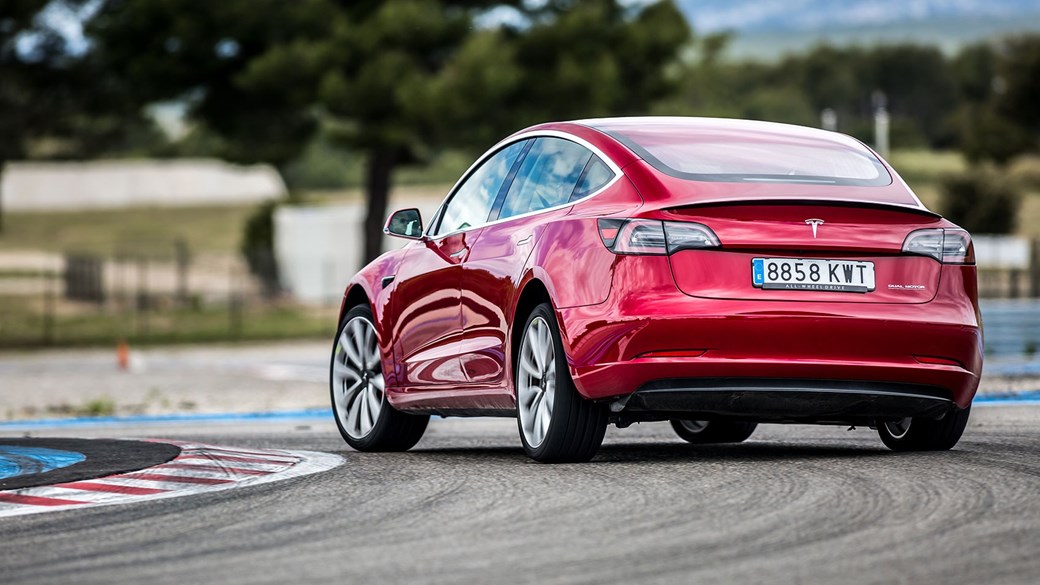
- From £40,490
The more affordable and long-awaited Model 3 has finally arrived in the UK. It might be the least expensive Tesla available but, even in entry-level form, few are likely to be disappointed – as even the base model packs a claimed 254-mile range and the ability to sprint from 0-60mph in just 5.3sec. It even comes with the Autopilot drive assistance system, which takes the edge off long trips and adds to the space-age feel. A dual-motor version with all-wheel drive and increased range is available; it can cover a claimed 329 miles and serves up a supercar-rivalling 0-60mph time of 3.2sec.
Read our full Tesla Model 3 review
View Leasing Offers
Volvo XC40 Recharge
Nissan Leaf
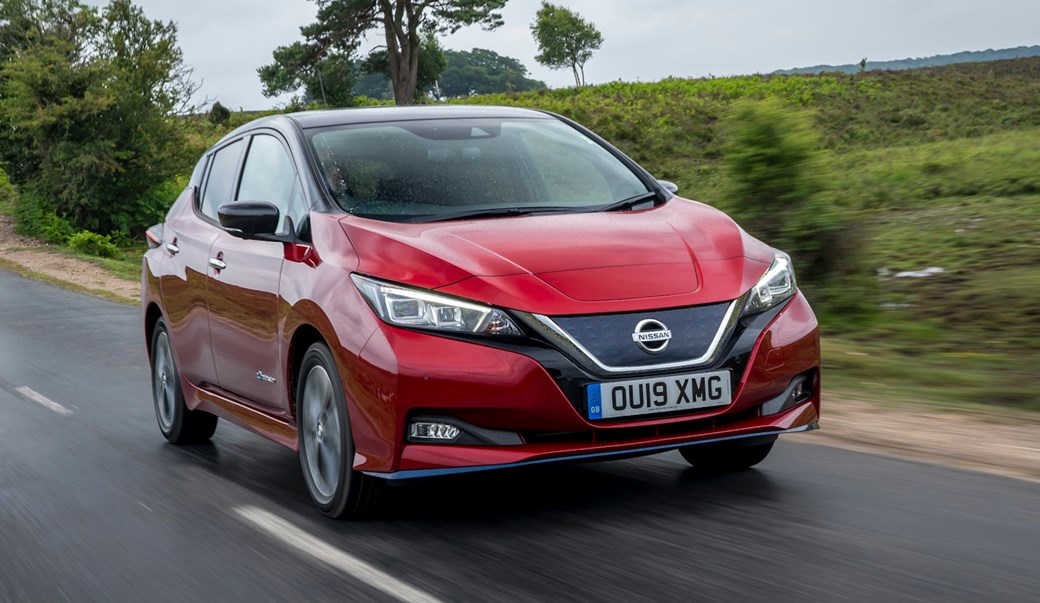
- From £26,845
The world’s first mass-market electric car is back in v2.0 as a better-than-ever family electric car. Priced from around £28k, the latest Nissan Leaf uses carryover mechanicals but sprinkled with a whole lot of better battery tech and a fresh wardrobe to bring it in line with the latest Nissan family look found in models such as the Qashqai. Nissan quotes a real-world range of up to 239 miles if you opt for the E+ version, giving the Leaf true everyday practicality creds. The interior is a bit of a let-down, but this is a very viable electric hatchback for families. We put a Leaf through a 10-month long-term test and, in the first 395 miles, we used electricity costing just £13.70 – revealing the true cost savings available with an EV.
Read our full Nissan Leaf review
View Leasing Offers
Hyundai Ioniq Electric
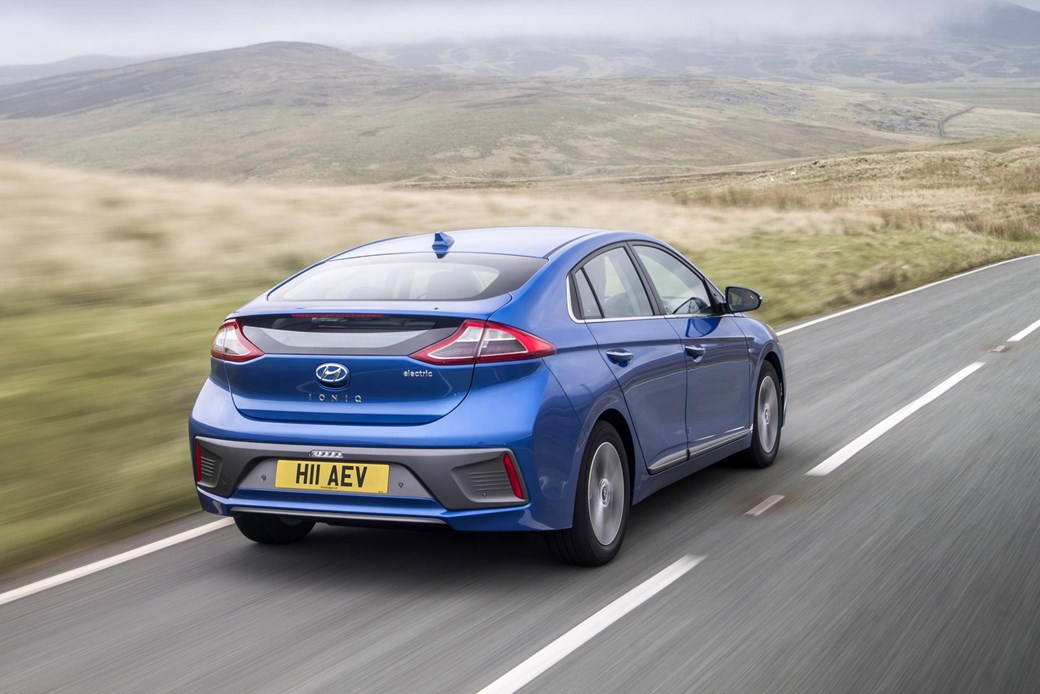
- From £30,950
Hyundai offers its sensible Ioniq family car in a variety of powertrains – including a pure electric version, which costs £30,950 after the government grant. If you’re still nervous about going full EV, you can alternatively pick a hybrid or plug-in hybrid version, providing a tad more reassurance on longer journeys. All Ioniqs have decent cabin space for families of four or five, as well as a decent boot, and their refined and relaxed nature makes them ideal for daily use.
Read our full Hyundai Ioniq review
View Leasing Offers
Tesla Model S
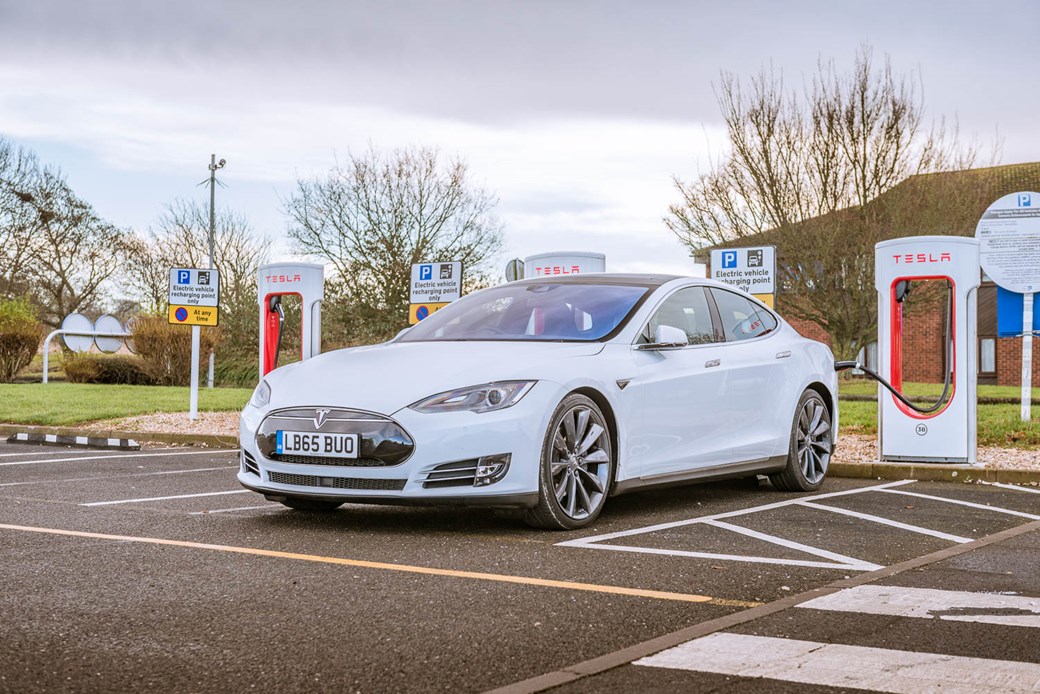
- From £82,190
The Model X’s more sensible saloon sibling, the Tesla Model S, is the landmark electric car that set the cat among the pigeons. It’s well established now and brought a dash of executive style to the EV marketplace years before the Europeans finally caught up. It has a very long range, exceeding 300 miles in many trim levels, and performance is – quite literally – ludicrous; go for the top model, opt for the ‘Ludicrous’ upgrade and you’ll have a car capable of 0-60mph in a blistering 2.4sec. These are practical saloon cars, that said, with plenty of space for five and a fully flat floor for rear-seat passengers. All Teslas benefit from the brand’s Supercharger network for rapid recharging, too, which makes them far easier to recharge than many rivals – as the alternatives often have to rely on independent, and frequently unreliable, charging networks. Just watch out for steep prices, which have ballooned to start at £82,190 for a Long Range Model S in the UK.
Read our Tesla Model S long-term test review
View Leasing Offers
Porsche Taycan
- From £83,367
The new Porsche Taycan is an incredible technical achievement. It does the things we all enjoy about driving – accelerating, braking, going around corners – with supreme alacrity, and features a massive well of capability largely untapped by normal driving. Porsche is deploying cheaper, rear-wheel drive variants to sit alongside the toppy Turbo, Turbo S and 4S models. Today, Taycan prices start at £83,367.
Read our Porsche Taycan review
View Leasing Offers
Polestar 2
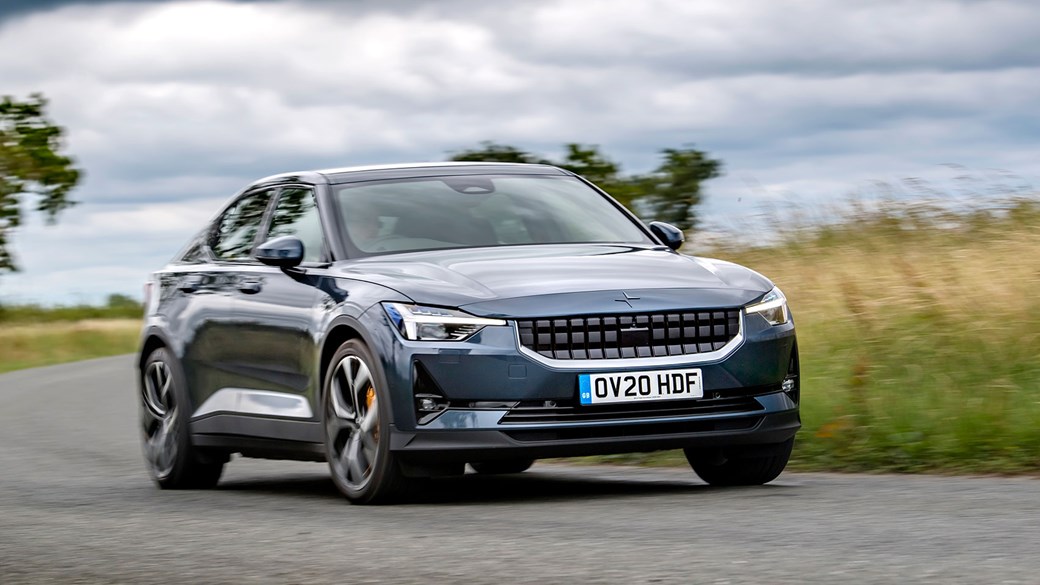
- From £49,900
The Polestar 2 is a cracking addition to the shopping list for mid-sized EV buyers. It sneaks in just under £50k, but rather more pertinently lease deals start at around £500 per month. Hailing from Sweden’s Volvo, Polestar is a new start-up that carries across the Scandi chic design values and quality from its sister brand, but wrapped up in a more progressive, modern vibe. This car ushers in Google’s first Android OS so there are very few buttons (sound familiar, Tesla?) and everything is operated from a touchscreen or by the Hey Google voice assistant. It’s great to drive, too, looks slick and is very well built.
Best small electric cars
This is where the cheapest electric cars are to be found. It’s a virtuous circle: smaller cars need smaller batteries and electric motors to get around, so price, mass and energy consumption all fall. You’ll just have to get used to the fact that smaller cells mean less energy capacity – so the confidence-inspiring long range you’ll get on most electric SUVs is conspicuous by its absence. Read on for our guide to the best small EVs of 2020.
Honda E

- From £26,660
What an interesting little conundrum the Honda e is. Its dinky size, cute face and properly cool interior are the biggest draws in its charm arsenal, so much so that some might overlook the low-ish available range and the price higher than other city EVs (it starts at £26,660 in the UK). It accelerates well enough and betrays its EV brethren by having, in some bases, better control feel, which is impressive when compared to some electric car rivals. We like it. A lot.
Read our Honda e review
View Leasing Offers
BMW i3

- From £36,025
Until autumn 2018, you could pick your BMW i3 in pure electric or plug-in range-extender forms – but the get-you-out-of-jail petrol engine onboard is being dumped for 2019. The i3 EV is the simplest of all, and mixes clever F1-spec carbonfibre construction with futuristic styling to make a great city car. With the tightest turning circle you’ve ever driven, this tiny BMW is extremely agile around town and there’s plenty of room in both rows of seats for bodies, although a small boot is a blot on the copy book. It feels every inch a small BMW to drive, with agile handling and that Germanic precision to the controls that impart a true premium feel. You’ll have to dig deep though; a new one starts at £36,025.
Read our BMW i3 long-term test review
View Leasing Offers
Renault Zoe
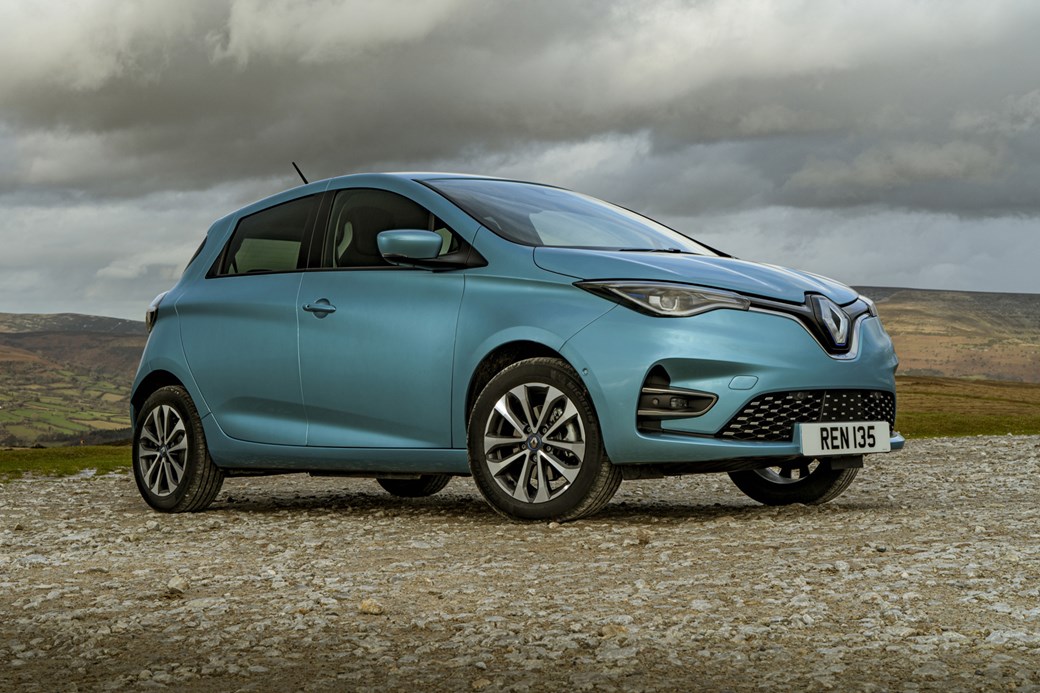
- From £26,195
The Renault Zoe is one of our favourite small electric cars and is fair value at around £26,195, once you’ve factored in the Government’s Plug-in Car Grant. This is a bespoke EV and now in its second generation. The latest update includes a battery pack with a 245-mile capable range under the official WLTP cycle. Latets tech from the most recent Clio has found its way inside, and the previous generation is cracking value secondhand.
Read our Renault Zoe review
View Leasing Offers
Smart EQ Fortwo and Forfour
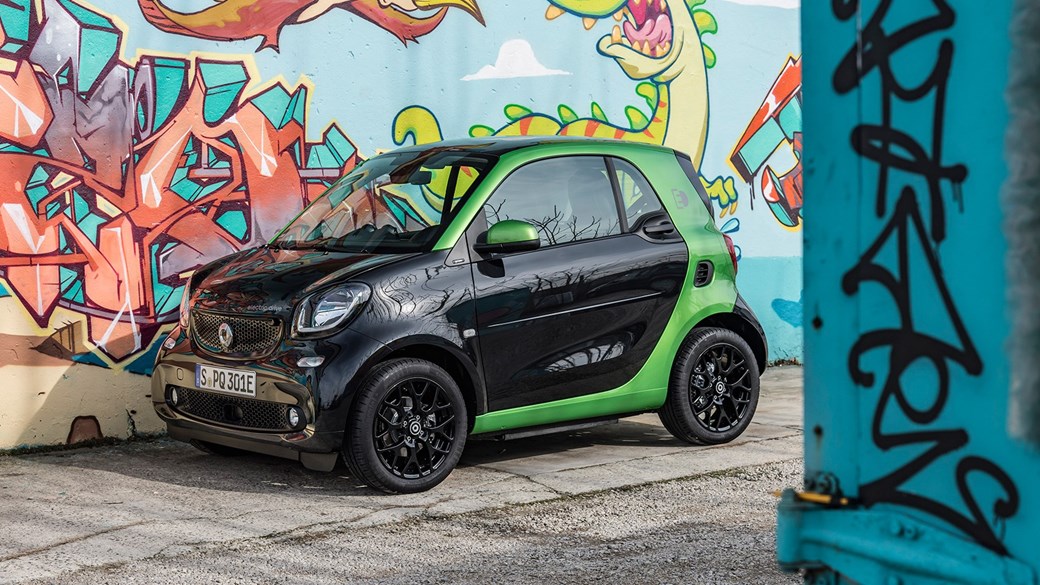
- From £17,350
If ever a regular combustion engine car was ready for electrification, it was the Smart Fortwo. This diminutive two-seater has been streaking around our city streets for two decades now and Daimler has seen sense and equipped it with an electric motor and battery for zero emissions and whisper-quiet urban transport. Smart has been developing its EQ models – originally called Electric Drive – for many years now and it’s managed to get the cost of EQ Fortwo down to around £17k after the Government grant. It drives much like a regular Fortwo and we found performance around town to be more than ample; only out on M-ways and faster roads did we feel it felt out of its depth. A cabriolet and four-seat Forfour version are also offered, widening the appeal of the compact city car further. It costs £17,350,
Read our Smart EQ Fortwo review
View Leasing Offers
VW e-Up
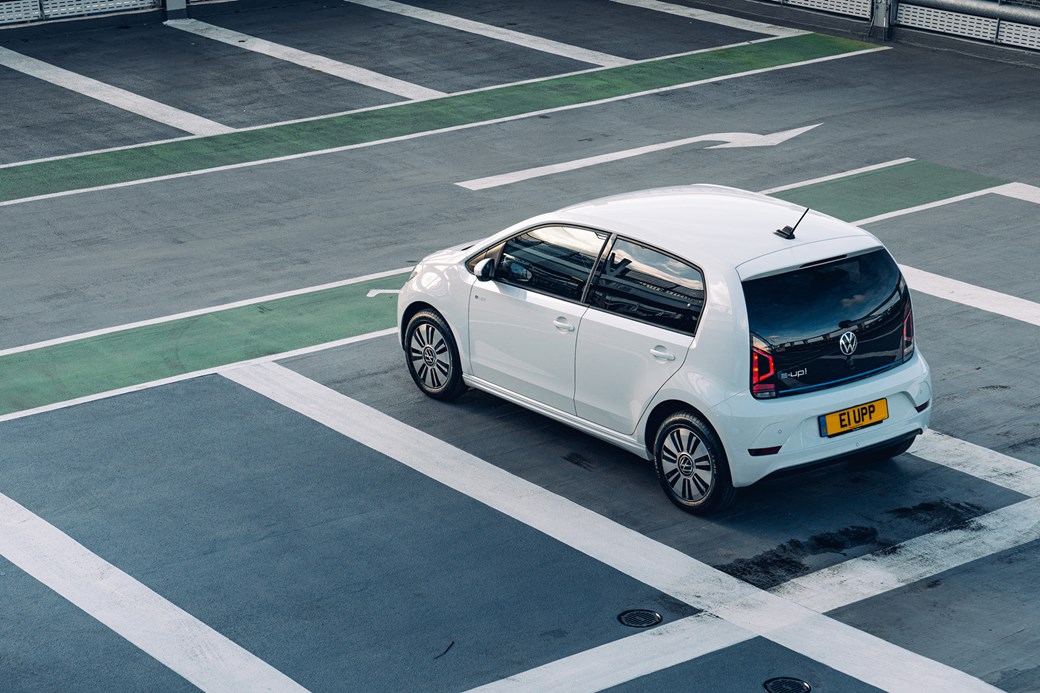
- From £20,195
‘A Smeg fridge on wheels’, we opined when we first drove the electric Up city car in 2017. Despite having a name that’d make a Yorkshireman grimace, the e-Up is a typically polished Germanic affair with all the usual Volkswagen quality and attention to detail. Its £20,135 price tag (after the Government grant) balances will with its claimed 162-mile range (which is a much easier pill to swallow than the 99-mile claim of the pre-updated car). It’s simple, no-nonsense and zero-emission transport; it won’t set your soul alight but if you’re looking for an easy-going electric city car, it should be on your shortlist.
Mini Electric

A fully electric Mini wasn’t even in the product plan when the F56 generation debuted in 2014, but here we are. If you want a Mini and want to go electric, this is a Mini to look at, sit in and (mostly) drive. The brand’s brief of delivering a three-door car that is largely indistinguishable from its combustion-engined compatriots has been delivered in full.
However, if you simply want a small electric car, the Mini Electric is beset on all sides with fiercely competitive rivals and is a touch less convincing because of it. If you look elsewhere, you can get the same range for less, more range for a similar price or a far more interesting car. Who’d have thought a Mini would be outdone in the character stakes?
Read our review of the Mini Electric here
More electric car buying advice
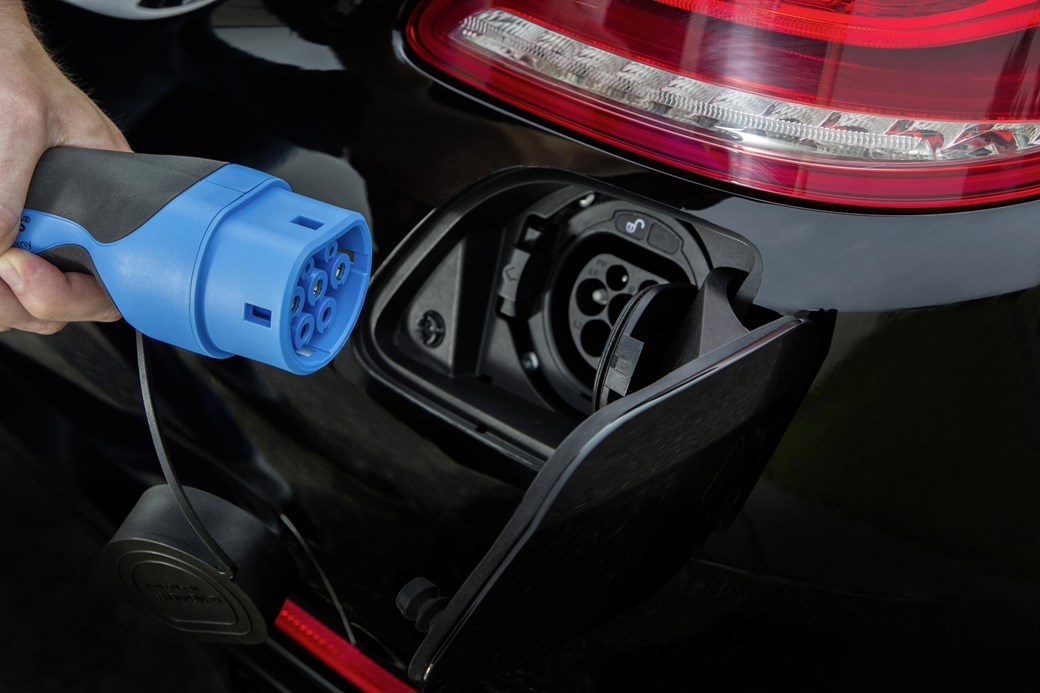
If you intend to use an electric car for longer journeys, make sure your local trunk roads and motorways have the infrastructure to support charging en route or consider an alternative, such as a plug-in hybrid electric vehicle (PHEV). These mix battery tech and petrol or diesel power to provide a get-out-of-jail-free card for when pure electric range simply isn’t enough.
If you want to know more about the best hybrids on the market, check out our separate explainer here.
The reality is that most electric car owners will rarely have to charge up in public; if you have off-street parking and the ability to charge at home, the latest EVs will manage most of your day-to-day driving needs just by charging your battery pack domestically overnight.
One EV brand in China – Nio – is even pioneering battery-swap stations, where a robot will replace your car’s depleted battery for a fully charged one while in just five minutes.
Pure electric cars will also save you money every single year because they’re exempt from road tax – for now, at least. Don’t miss our handy guide to how VED car tax favours EVs here – and there’s lots of advice on company car tax in our explainer here.
Why are electric cars so expensive?
EVs might cost more to buy than their petrol or diesel counterparts today, but the gap is narrowing. The latest research by analysts at Deloitte suggests that price parity with internal combustion cars is likely to happen this year. ‘In the UK, the cost of petrol and diesel vehicle ownership will converge with electric over the next five years,’ predicts Michael Woodward, UK automotive partner at Deloitte.
‘Supported by existing government subsidies and technology advances, this tipping point could be reached as early as 2021. From this point, cost will no longer be a barrier to purchase, and owning an EV will become a realistic, viable option for new buyers.’
Some predictions say that 2021 is too early, but the trend is unequivocal: EVs are becoming cheaper and as prices lower, their appeal rises. Here’s our list of the cheapest electric cars you can buy.
Terms, conditions and exclusions apply. Bauer Consumer Media Limited is an appointed representative of ZenAuto Limited for the broking of regulated hire agreements. ZenAuto Limited is authorised and regulated by the Financial Conduct Authority. ZenAuto Limited’s registered office is Number One, Great Exhibition Way, Kirkstall Forge, Leeds LS5 3BF. ZenAuto Limited’s company registration number is 10967345. ZenAuto is the trading name of ZenAuto Limited.
CUT COTS OF THE FLEET WITH OUR AUDIT PROGRAM
The audit is a key tool to know the overall status and provide the analysis, the assessment, the advice, the suggestions and the actions to take in order to cut costs and increase the efficiency and efficacy of the fleet. We propose the following fleet management audit.


